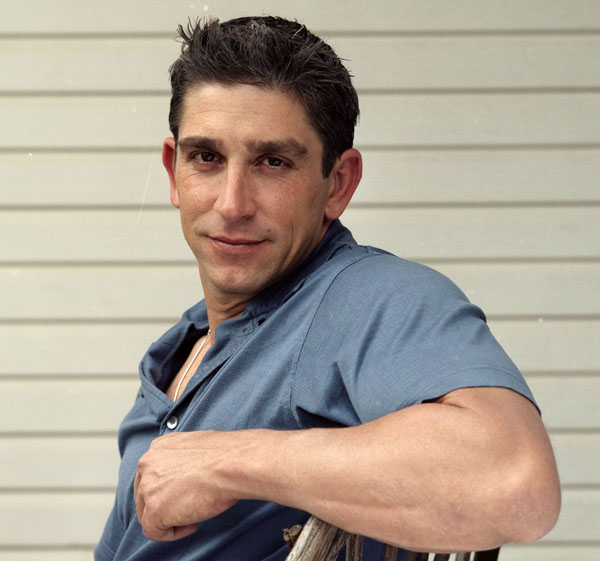On the Bethel Planning Board, Richard Blanco is known as a wordsmith, helping his colleagues draft language on board decisions, such as the approval of a sign application for Inman’s Diner on Route 2 or the site plan for the new mineral and gem museum under construction on Main Street.
Still, it was quite a surprise on Wednesday when the Presidential Inauguration Committee announced that Blanco will serve as the inaugural poet during the swearing-in ceremony on Jan. 21 of President Barack Obama and Vice President Joe Biden.
“Very few people knew he was a published poet before this,” said Vicki Rackliffe, the town’s planning assistant. “He kind of kept it to himself.”
Not anymore. With the nation watching, the relatively obscure poet will recite an original poem on the steps of the Capitol. He will be the nation’s fifth inaugural poet since Robert Frost recited a poem at the inauguration of President Kennedy in 1961.
“I am thrilled,” Blanco said in an email, adding that he is already busy working on the poem for the inaugural.
Blanco, who refused several requests for a telephone interview, told National Public Radio on Wednesday that it’s a difficult assignment.
“But luckily, I really sort of have keyed in to the theme of the inauguration, which is Our People, Our Future, and writing about America is a topic that obsesses me in terms of cultural negotiation and my background as a Cuban-American.”
Still, he told NPR, his big challenge will be to maintain a sense of intimacy and conversational tone in a poem that “obviously has to sort of encompass a whole lot more than just my family and my experience.”
At age 44, Blanco will be the youngest inaugural poet, as well as the first Hispanic and the first gay person to recite a poem at the swearing-in ceremony.
Obama chose Blanco because the poet’s “deeply personal poems are rooted in the idea of what it means to be an American,” said Addie Whisenant, the inaugural committee’s spokeswoman.
Blanco told The New York Times he related to the president’s life story, given their shared multicultural backgrounds. “There has always been a spiritual connection in that sense,” he said. “I feel in some ways that when I’m writing about my family, I’m writing about him.”
Blanco’s poems often speak to the immigrant experience. Born in Spain to Cuban exiles, Blanco’s parents emigrated to New York City days after his birth and eventually settled in Miami.
His parents named him after Richard Nixon, a Republican leader who railed against Fidel Castro, according to The New York Times.
Blanco moved from Miami to Bethel in 2009, shortly after he presented a poetry reading at the University of Maine Museum of Art and the English Department’s New Writing Series program.
At the reading, Blanco read his poem “Looking for the Gulf Motel,” which was published in a book of the same title in 2012. The poem recalls Blanco’s childhood, when his parents, while on vacation on a Florida beach, cooked Cuban food in the hotel’s kitchenette using an espresso pot and a pressure cooker:
“All because we can’t afford to eat out, not even
on vacation, only two hours from our home
in Miami, but far enough away to be thrilled
by whiter sands on the west coast of Florida,
where I should still be for the first time watching
the sun set instead of rise over the ocean.”
The poem speaks about families who are struggling economically but still creating meaningful memories for their children, said George Kinghorn, executive director of the University of Maine Museum of Art and a friend of Blanco’s. He said he sees how Obama would be captivated by a poem with that kind of message.
“The desire to give children the best opportunity and hope is reflected in that poem,” Kinghorn said.
Blanco’s ascent to national attention will add to Maine’s rich poetry heritage, which includes other well-known poets such as Henry Wadsworth Longfellow and Edna St. Vincent Millay, said Julie Richard, executive director of the Maine Arts Commission.
“We are enormously excited about the potential impact of this for the arts and the people of Maine,” she said.
As a writer, Blanco explores the intersection of his cultural identities as a Cuban-American gay man, according to a statement from the inaugural committee. His work examines the American experience of cultural negotiation through the lens of family and love, particularly his mother’s life shaped by exile, his relationship with his father, and the passing of a generation of relatives.
While working as a civil engineer, he taught at various universities throughout the country, including American and Georgetown universities.
Blanco’s career as an English-language Latino poet gained momentum when his first collection, “City of a Hundred Fires,” won the Agnes Lynch Starrett Poetry Prize from the University of Pittsburgh. His second book of poetry, “Directions to The Beach of the Dead,” won the PEA American Center Beyond Margins Award.
When Blanco moved with his partner to Bethel, he began focusing exclusively on his writing, Kinghorn said. He said Blanco lives in an inspiring setting for a writer, in a rural part of Bethel with beautiful mountain views.
Shortly before moving to Bethel, Blanco volunteered to serve on the Planning Board and also the Ordinance Review Committee.
Blanco is thoughtful, and his experience as a civil engineer has been valuable, said Andrew Glasfeld, the board’s outgoing chairman.
Most recently, Blanco has been helping rewrite the town’s sign ordinance, said Town Manager Jim Doar.
He said that almost everyone in Bethel will be watching the inaugural ceremony to hear Blanco recite his poem.
“We are all excited for him and know he will do well,” Doar said. “He will be doing the town of Bethel proud.”
Staff Writer Tom Bell can be contacted at 791-6369 or at: tbell@pressherald.com
Send questions/comments to the editors.


